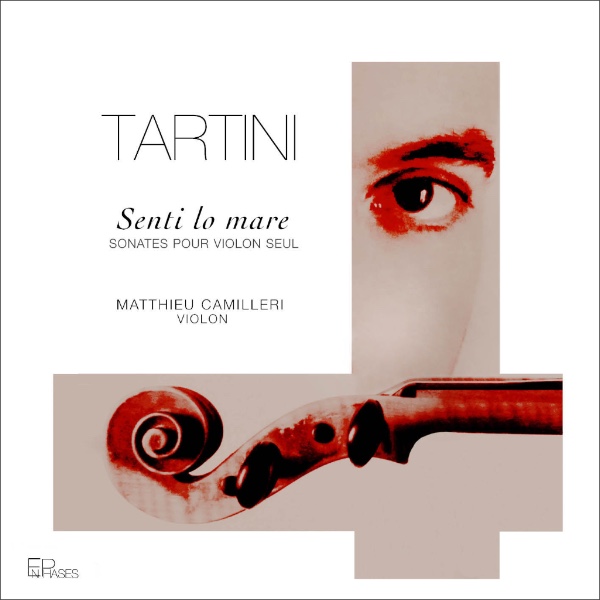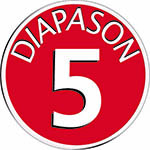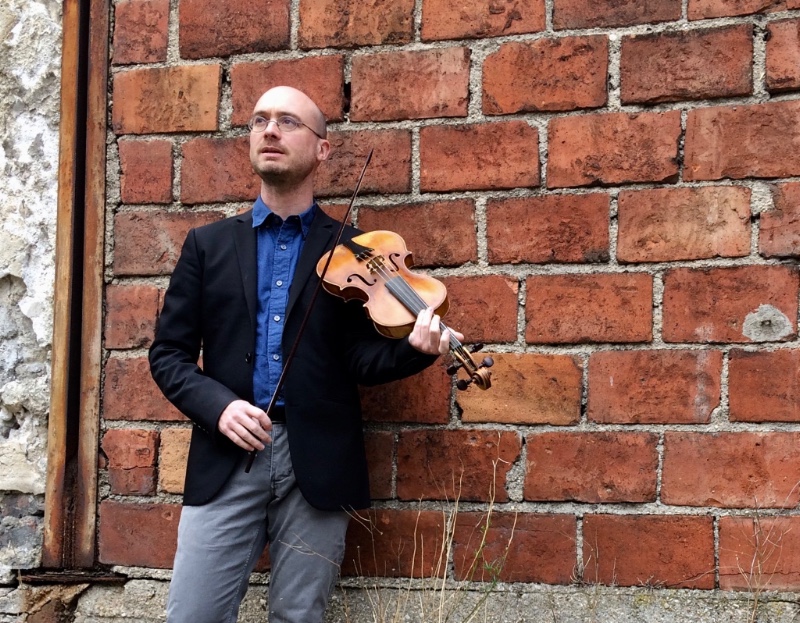Tartini - Sonates pour violon seul

Tartini
Sentio lo mare
SONATES POUR VIOLON SEUL
MATTHIEU CAMILLERI, VIOLON
LABEL ENPHASES, DISTRIBUTION OUTHERE
ENP002
Release date: 25 May 2018


Prélude - Capriccio*
Sonate XXII la mineur
Andante Deh serbate Amici dei*
Allegro Tra l’orror della tempesta
Presto
Allegro assai Senti lo fonte, senti lo mare
Sonate XII sol Majeur
Aria del Tasso Lieto ti prendo e poi **
Altro Grave Tormento di quest’anima
Canzone Venetiana
9 Aria Quanto mai felici siete - double*
Temo variato
Aria del Tasso*
Sonate en sol mineur
12/8 (Brainard g15)
A rivi a fonti a fiumi correte amare lagrime*
Rondinella vaga e bella*
Variations*
Solitario Bosco Ombroso*
Sonate en mi mineur
Grave*
Allegro*
Gigue*
Allegro Cantabile Senti lo fonte, senti lo mare*
** Voix : Matthieu Camilleri
Listen to excerpts: Tartini - Sonatas for Solo Violin

"Solitude... The polyphonic possibilities of the violin were explored from the beginning of its history.
I suspect that this use of the instrument was also the prerogative of improvisation, the first pages of the solo violin repertoire often having this character of written improvisations. These are precious testimonies for us, musicians of the XXIst century: we can consider them as superb recorded solos, neat examples of what a virtuoso could have produced, ex tempore...
If the genre undoubtedly reaches its peak with Johann Sebastian Bach's Sonatas and Partitas, Sei solo, i.e. 'you are alone' (the plural should have been soli...), the Tartini sonatas in the autograph manuscript call for a radically different style of writing, and to such an extent that they have long been denied the status of a work for solo violin. Indeed, the part of the counterpoint is now limited, it is a matter of accompanied melody where the violin's song comes to seek its bass here and there, always in the economy, the simple necessary to preserve the grace of the line.
As the range expands towards the high notes and cares for the chanterelle, the violin seems even more orphaned, uprooted and solitary. It seems that a whole implicit harmonization takes place in the unspoken of our imagination, which from time to time proposes its provisional solutions. Thus an ad libitum harmonisation takes place, as much for the fullness as for the nature of the bass, which Tartini -when he does it- delivers to us very roughly. It is up to us, listeners or musicians, to know how to savour this vertigo, a fragile world of sound, where everything is only suggestion...".
Matthieu Camilleri
About Mathieu Camilleri
Trained with Chiara Banchini at the Schola Cantorum Basiliensis (Basel), then François Fernandez at the Conservatoire Supérieur de Paris, Matthieu Camilleri performs regularly with the Concert Spirituel (Hervé Niquet) as well as with various chamber ensembles such as La Fenice (Jean Tubéry), the Parlement de Musique (Martin Gester), Concerto Soave (Jean-Marc Aymes), etc.
With his own ensemble, Les Récréations, he recorded the trio sonatas of Johann Gottlieb Graun (Raumklang) and played in several early music festivals (Lanvellec, Ribeauvillé, Souvigny, Frissons Baroques, etc).
He has specialised in the field of historical improvisation with the organist Rudolf Lutz at the Schola: improvisation with the bass, but also with the violin alone - in the course of his research into this repertoire, he has developed a system of polyphonic reflexes applicable to string instruments -, and thus gives, alone or accompanied, entirely improvised recitals in several concert series such as the Festival des Musiques Improvisées de Lausanne, the Improvisationsfestival Leipzig, the Festival de Lanvellec, etc.
Whatever the configuration, the ensemble, the occasion or the repertoire, he is always looking for a space for the vertigo of instantaneous creation. It is a real quest for authenticity, not only stylistically but also personally.
Convinced of the immense pedagogical virtues of the improvisational approach, the ultimate stage of stylistic acquisition, he regularly gives courses or masterclasses at several institutions: Conservatoires Nationaux Supérieurs de Musique de Lyon et Paris, Schola Cantorum Basiliensis, Royal Academy of Music London, Festival des Musiques Improvisées de Lausanne, Académie de Monaco.

Share on your networks!
Follow us on the networks!

